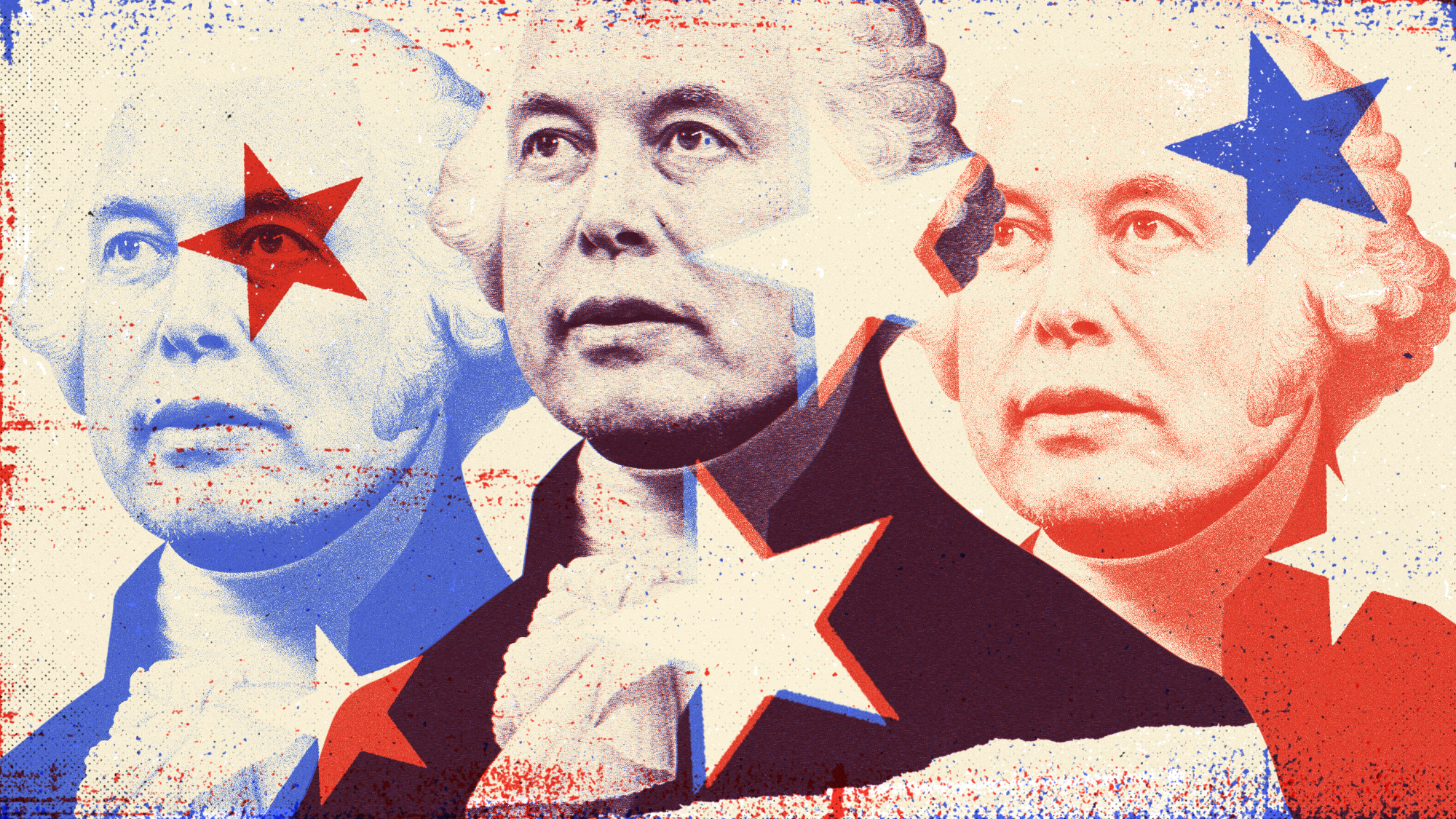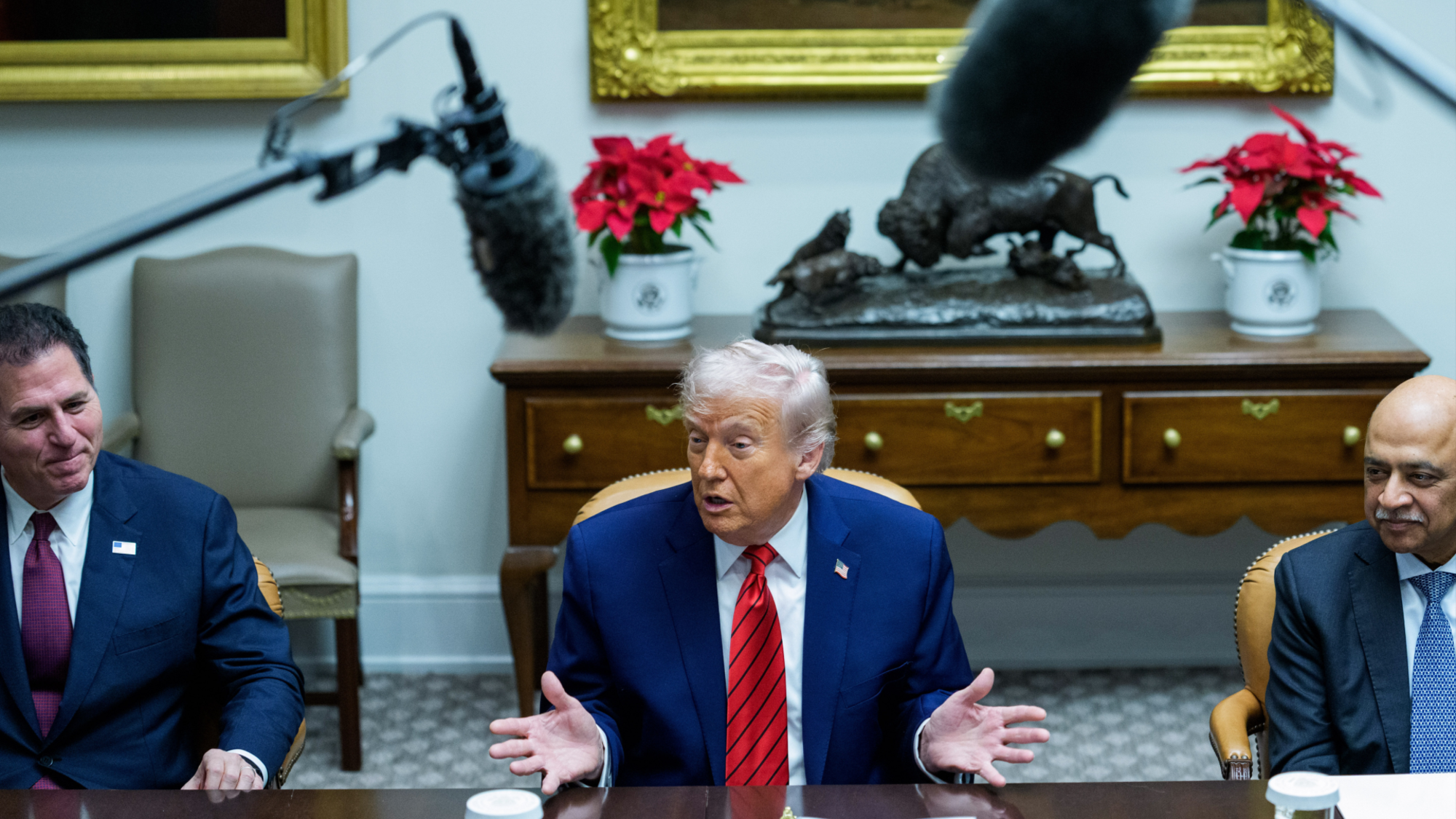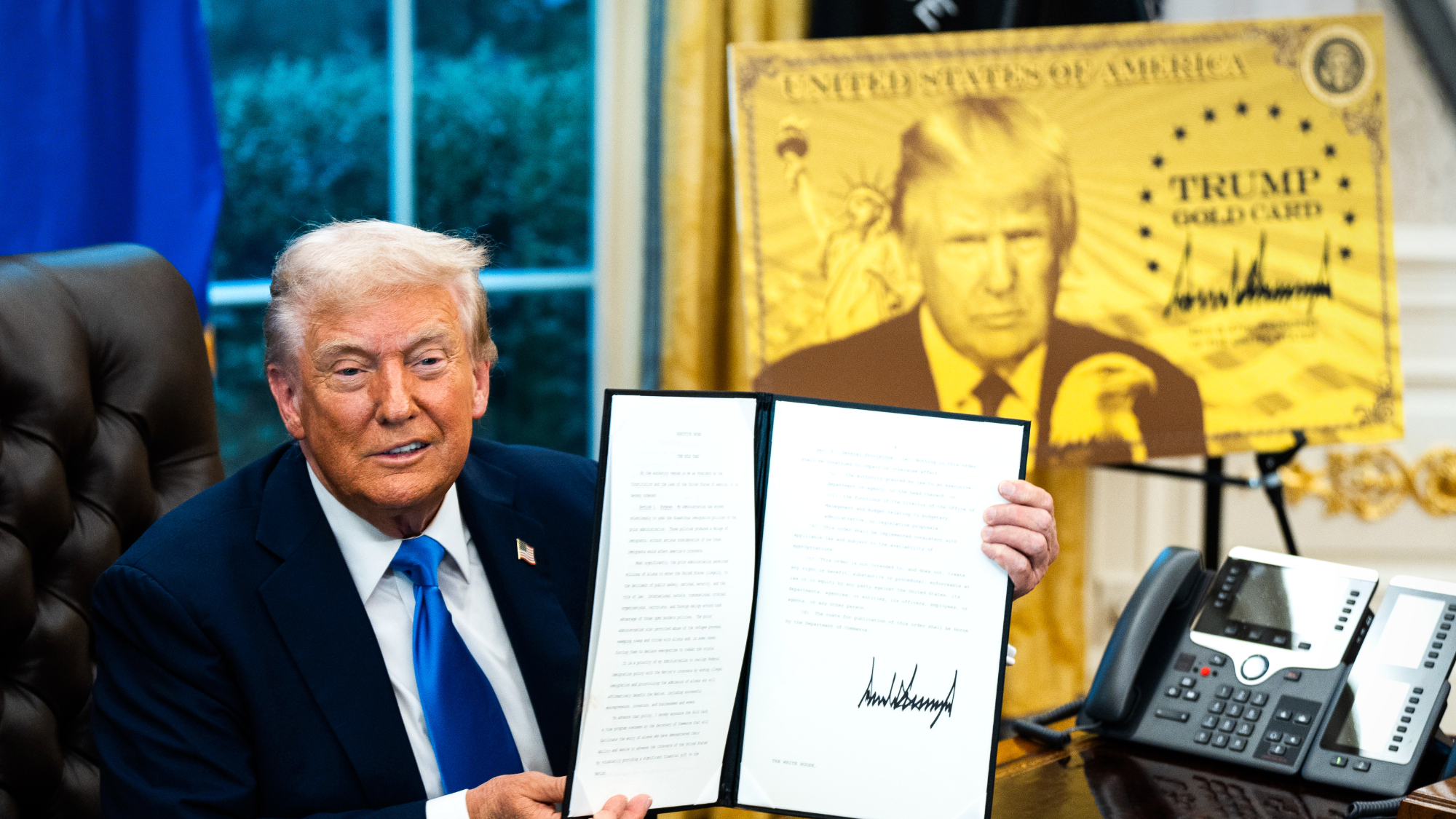How successful would Elon Musk's third party be?
Musk has vowed to start a third party after falling out with Trump


Within the course of a few weeks, Elon Musk has gone from a close confidante of President Donald Trump to his apparent political enemy. There is no clearer evidence of this than Musk's intention to start a third-party movement to fight against the Democrats and Republicans; he has promised to form the America Party if Trump's "Big Beautiful Bill" passes Congress.
But while Musk, the wealthiest man in the world, certainly has the financial capital to start a new political party, it may not be effective given the strength of the two main parties in the United States.
What did the commentators say?
Musk could easily "make a sizable impact at a time of widespread distrust of the political system and other democratic institutions" due to his wealth, said The Washington Post. No matter how influential (or not) his potential America Party became, he "could make life difficult for lawmakers he says have reneged on their promise to cut spending."
The Week
Escape your echo chamber. Get the facts behind the news, plus analysis from multiple perspectives.

Sign up for The Week's Free Newsletters
From our morning news briefing to a weekly Good News Newsletter, get the best of The Week delivered directly to your inbox.
From our morning news briefing to a weekly Good News Newsletter, get the best of The Week delivered directly to your inbox.
But shifting demographics might make things interesting, as a "new constituency has begun to emerge. For now, it does not have a home in either party, and it is not clear that either party will be able to easily accommodate its demands," said The New York Times. This represents the "overlooked precondition for a third party," and Musk himself "falls into this group." These types of people favor "deficit reduction, deregulation, free trade and high-skilled immigration," and are often referred to by Democrats and Republicans as "neoliberals" or "globalists."
A "genuinely competitive third party would upend more than a century of Democrats-Republicans dominance at all levels of government," said Deutsche Welle. But this may be easier said than done. The biggest third party in the U.S., the Libertarian Party, had its "best presidential election performance in 2016" with 3.28% of the popular vote, but that's still a "long way from the tens of millions of votes needed to win the White House, a governorship or even a state legislature seat."
Even making Americans aware of a third-party candidate can be a challenge, as "each state has different legal rules for recognizing which political parties can appear on the ballot," said CBS News. New parties in some states "may need to get candidates onto the ballot by submitting large numbers of signatures" and then winning a "certain percentage of the vote across election cycles."
When new parties do emerge, some "voters and candidates are hesitant to join," and "despite varying approval levels, party loyalties remain strong," said CNN. This remains especially true for Republicans, many of whom "have coalesced around Trump."
A free daily email with the biggest news stories of the day – and the best features from TheWeek.com
What next?
While Musk continues to muse about his third party, reports have emerged that Libertarians are trying to coax him into their corner. The Libertarian Party is the "most set-up party to be the dissident subversive party," Libertarian National Committee Chair Steven Nekhaila told Politico. Libertarian leaders have been trying to rally Musk to their cause due to his enormous wealth, and "once the capital is there, the doors get blown wide open."
Libertarians also have "ballot access in almost every state, which many recent third-party efforts have failed to secure," said Politico. But Musk's willingness to genuinely explore membership in the Libertarian Party remains unclear. Regarding his prior political action, Musk "hasn't gotten the return on his investment he once hoped" for from Trump, and will likely continue looking elsewhere.
Justin Klawans has worked as a staff writer at The Week since 2022. He began his career covering local news before joining Newsweek as a breaking news reporter, where he wrote about politics, national and global affairs, business, crime, sports, film, television and other news. Justin has also freelanced for outlets including Collider and United Press International.
-
 Political cartoons for December 13
Political cartoons for December 13Cartoons Saturday's political cartoons include saving healthcare, the affordability crisis, and more
-
 Farage’s £9m windfall: will it smooth his path to power?
Farage’s £9m windfall: will it smooth his path to power?In Depth The record donation has come amidst rumours of collaboration with the Conservatives and allegations of racism in Farage's school days
-
 The issue dividing Israel: ultra-Orthodox draft dodgers
The issue dividing Israel: ultra-Orthodox draft dodgersIn the Spotlight A new bill has solidified the community’s ‘draft evasion’ stance, with this issue becoming the country’s ‘greatest internal security threat’
-
 Will Trump’s $12 billion bailout solve the farm crisis?
Will Trump’s $12 billion bailout solve the farm crisis?Today’s Big Question Agriculture sector says it wants trade, not aid
-
 ‘City leaders must recognize its residents as part of its lifeblood’
‘City leaders must recognize its residents as part of its lifeblood’Instant Opinion Opinion, comment and editorials of the day
-
 Homeland Security Secretary Kristi Noem might not be long for Trumpland
Homeland Security Secretary Kristi Noem might not be long for TrumplandIN THE SPOTLIGHT She has been one of the most visible and vocal architects of Trump’s anti-immigration efforts, even as her own star risks fading
-
 Indiana Senate rejects Trump’s gerrymander push
Indiana Senate rejects Trump’s gerrymander pushSpeed Read The proposed gerrymander would have likely flipped the state’s two Democratic-held US House seats
-
 Will there be peace before Christmas in Ukraine?
Will there be peace before Christmas in Ukraine?Today's Big Question Discussions over the weekend could see a unified set of proposals from EU, UK and US to present to Moscow
-
 What role will Trump play in the battle over Warner Bros. Discovery?
What role will Trump play in the battle over Warner Bros. Discovery?Today’s Big Question Netflix and Paramount fight for the president’s approval
-
 ‘The menu’s other highlights smack of the surreal’
‘The menu’s other highlights smack of the surreal’Instant Opinion Opinion, comment and editorials of the day
-
 $1M ‘Trump Gold Card’ goes live amid travel rule furor
$1M ‘Trump Gold Card’ goes live amid travel rule furorSpeed Read The new gold card visa offers an expedited path to citizenship in exchange for $1 million
